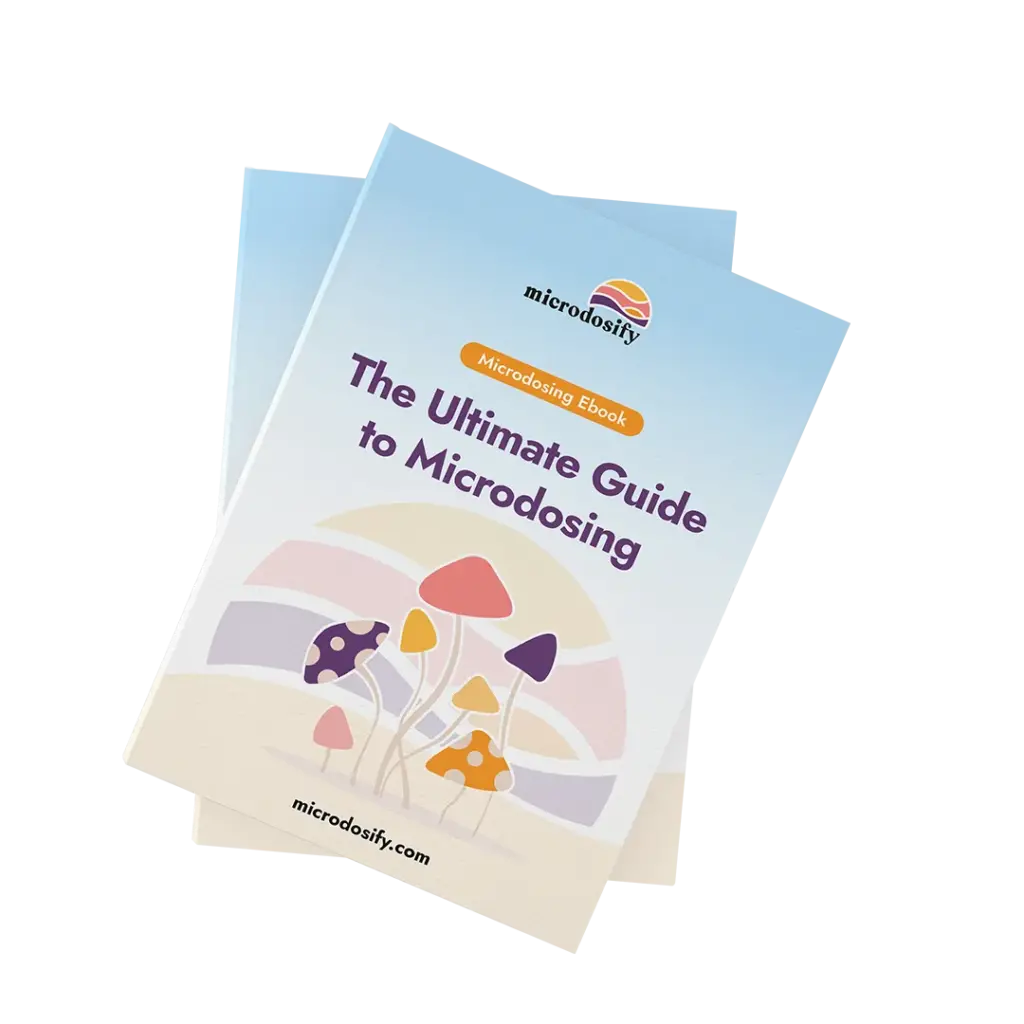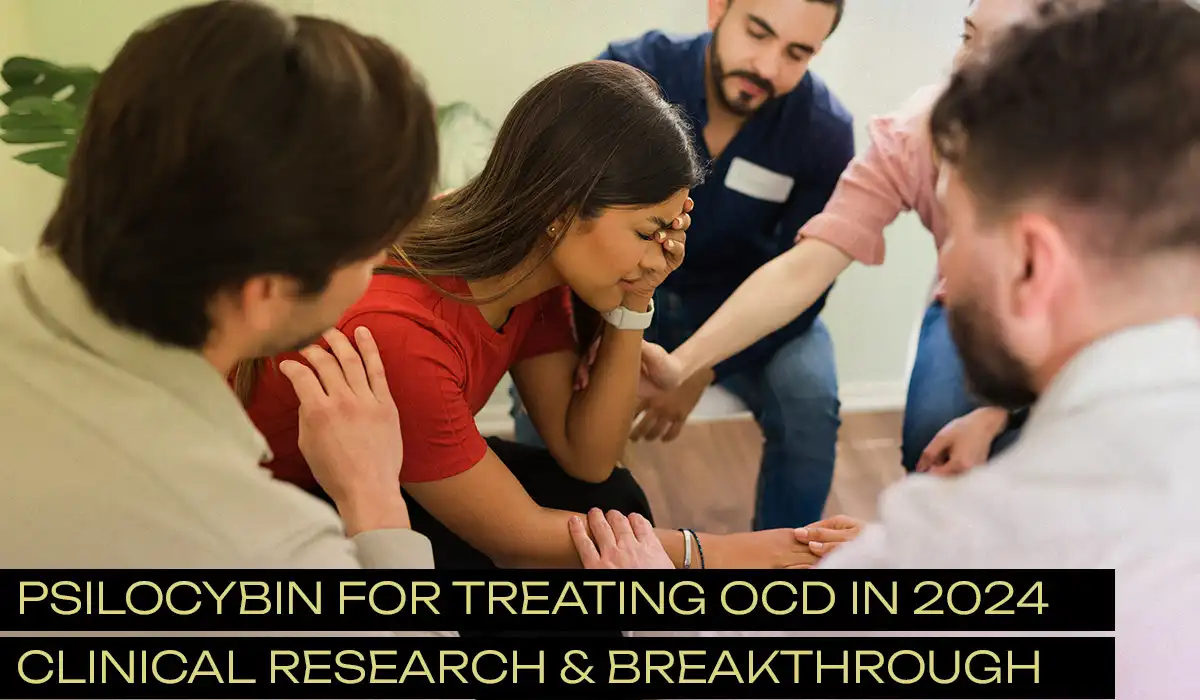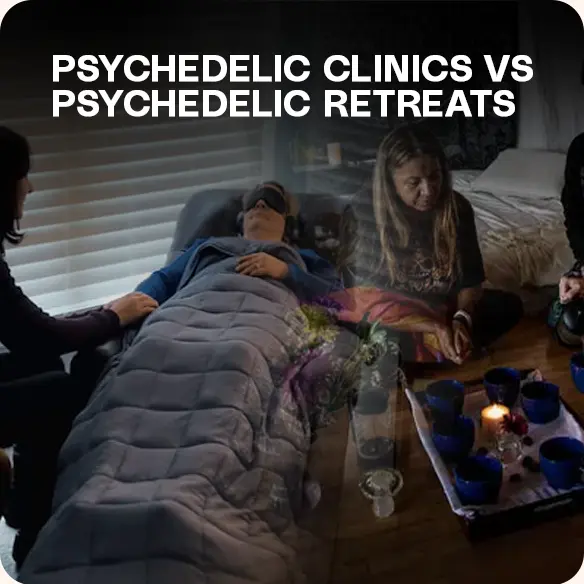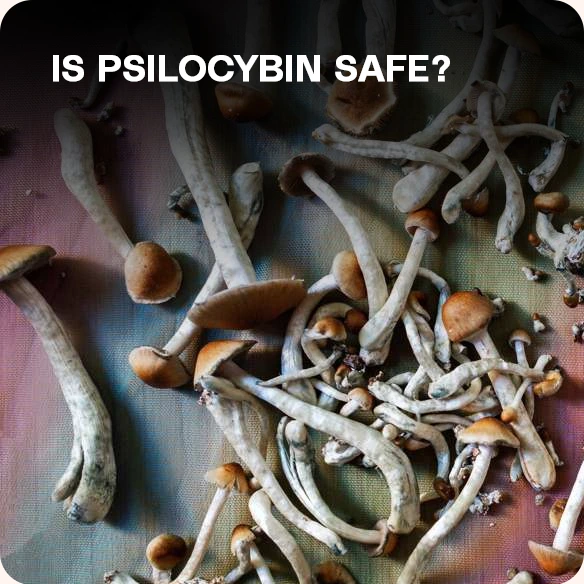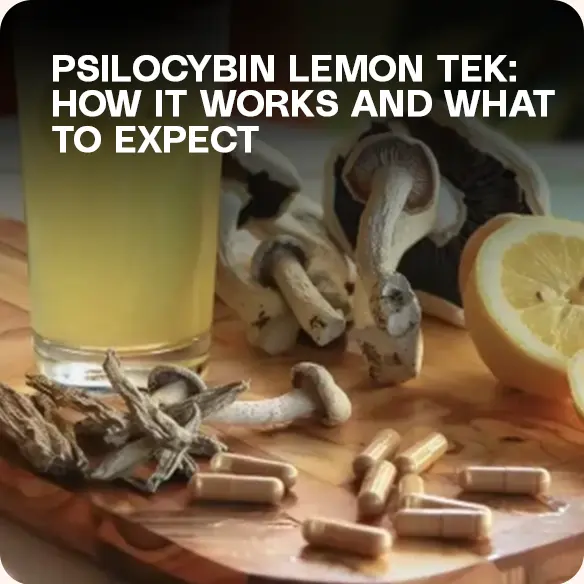What is OCD?
Obsessive-Compulsive Disorder (OCD) is a mental health condition that is characterized by persistent and unwanted thoughts, as well as repetitive behaviors. OCD can cause intense anxiety and distress due to fears of contamination, harming others, or making a mistake.
To relieve this anxiety, individuals engage in compulsive behaviors like excessive washing, checking, or counting. OCD can significantly interfere with daily life and relationships, and its impact can range from mild to severe.
How does your mind function with OCD?
OCD impacts both thought and emotion. Intrusive thoughts can (obsessions) trigger anxiety and repetitive behaviors (compulsions) for relief, creating a distressing cycle. Brain changes affect thinking and worsen anxiety.
Living with OCD is emotionally draining and can impact relationships. Seeking help is crucial for managing OCD and improving quality of life.
How can psilocybin help in trеating OCD?
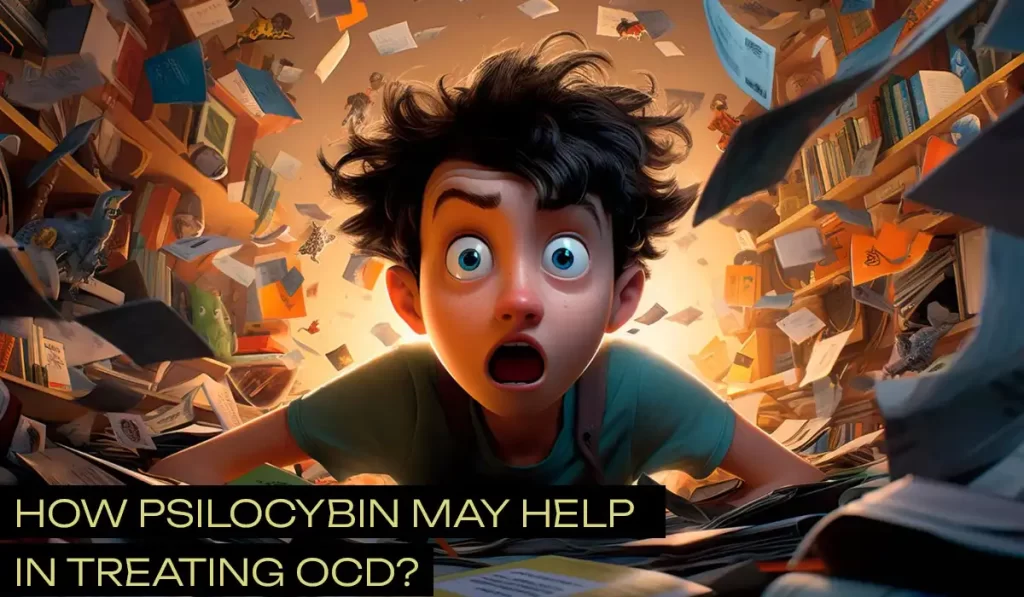
Psilocybin could offer a fresh perspective for those managing OCD by engaging specific brain areas associated with mood and emotions, fostering a new understanding and approach to their experiences. One such approach involves the use of psilocybin within a nurturing and safe, therapeutic environment, often referred to as psilocybin therapy.
During psychedelic therapy sessions, conducted in a safe and supportive environment, trained therapists guide individuals through the experience. The goal is to create a setting where patients feel comfortable and open to exploring their feelings and thoughts under the influence of psilocybin.
This approach can lead to important insights, enabling individuals to understand the origins of their OCD symptoms. The experience may uncover hidden emotions, traumas, or unresolved issues contributing to their obsessive thoughts and actions.
By promoting a sense of connection and expanded awareness, psilocybin offers a novel strategy to interrupt the cycle of obsessive thoughts and behaviors, providing an opportunity for individuals to approach their condition in a new and potentially more effective way.
Clinical Research on Psilocybin and OCD
Clinical research on psilocybin therapy to support OCD is limited. Below we summarize current and upcoming breakthrough research.
A 2006 study by Morena, et al, looked at the safety and potential efficacy of psilocybin on nine patients with clinically diagnosed OCD. While the study numbers were small, this pioneering trial showed no severe adverse effects, and decreased OCD symptoms in varying degrees in all subjects.
Yale Medicine is currently investigating the potential of psilocybin to treat OCD in a placebo-controlled study on 30 individuals. According to their website, “This study aims to investigate the effects of oral psilocybin on OCD symptomatology and provide the first evidence of the neural mechanism that may mediate psilocybin’s purported therapeutic effects on OCD.”
While clinical research is limited, there are many anecdotal reports supporting the potential use of psilocybin as a tool for managing OCD.
Related: Medical Doctors Are Changing Their Mind About Psychedelics
What is thе safе dosagе of psilocybin for trеating OCD?
The safe or best dose of psilocybin for treating OCD is unknown. In the 2006 trial by Moreno et al, each of the nine participants was given three different doses, defined as low, medium, and high doses by researchers over the course of several weeks.
While changes in OCD symptoms were noted in all participants at varying doses, the effect of dose itself did not seem to have a significant impact on the study results. It is important to keep in mind that this was a very small study and future inquiries are required to determine what dose(s) may be the best for psilocybin supported treatment of OCD.
If you are suffering from treatment-resistant depression, then read this: Psilocybin Dose for Depression
Bеnеfits of Psilocybin for OCD
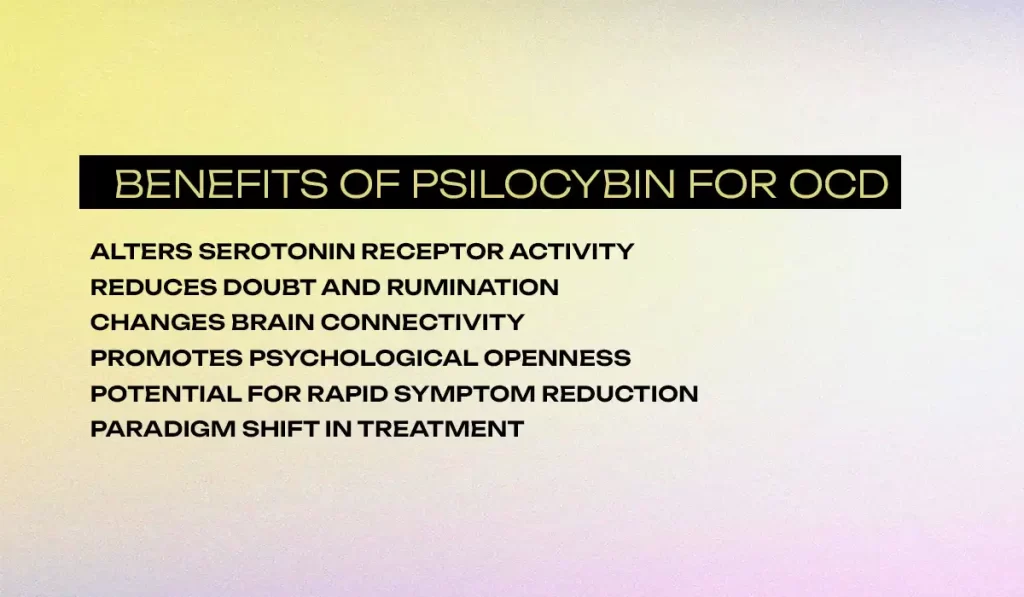
While the mechanisms of how psilocybin might support OCD are unknown, many experts believe that psilocybin’s ability to reduce doubt and rumination, increase neuroplasticity and promote openness can benefit those with OCD.
Lеt’s brеak it down:
- Rеducеs Doubt and Rumination: Psilocybin may help with kеy OCD еlеmеnts likе doubt and ovеrthinking. This might be due to the impact that psilocybin has on the brain’s Default Mode Network (DMN) with is associated with self-referential thinking and rumination. Psilocybin has been shown to quiet or deactivate this network, therefore reducing rumination.
- Increases Neuroplasticity: Psilocybin primarily interacts with the 5-HT2A receptor, leading to downstream effects on brain that can promote the growth of new neurons and connections in specific brain regions associated with learning, memory, and mood regulation.
- Promotеs Psychological Opеnnеss: Studies suggest psilocybin experiences can promote temporary increases in psychological openness, characterized by curiosity, receptivity to new ideas, and decreased rigidity in thinking.
Risks of Psilocybin for OCD
The risks of taking psilocybin for OCD may include psychological vulnerabilities, anxiety or paranoia, physical effects, and potential for unknown interactions with medications. . Lеt’s brеak it down:
- Psychological Vulnerabilities: Psilocybin can amplify emotional states, making it potentially overwhelming, especially for those who may struggle to regulate their emotions or emotional reactions. Using psilocybin under the guidance of a trained professional or medical doctor can significantly decrease this risk.
- Anxiety or Paranoia: Psilocybin can increase anxiety and paranoia, especially in those that are already prone to these experiences. Using psilocybin under the guidance of a trained professional or medical doctor can significantly decrease this risk.
- Physical effects: Psilocybin can cause temporary increase in heart rate and blood pressure, which may pose concerns, especially for those with heart conditions.
- Potential Unknown Interactions with Medication: Many people with mental health challenges use traditional pharmaceuticals. While there are few reported interactions with psilocybin and traditional medications, there is always potential for an unknown, and potentially harmful, reaction when combining psilocybin with other medications.
Is Psilocybin Therapy for Psychiatric Disorders FDA Approved?
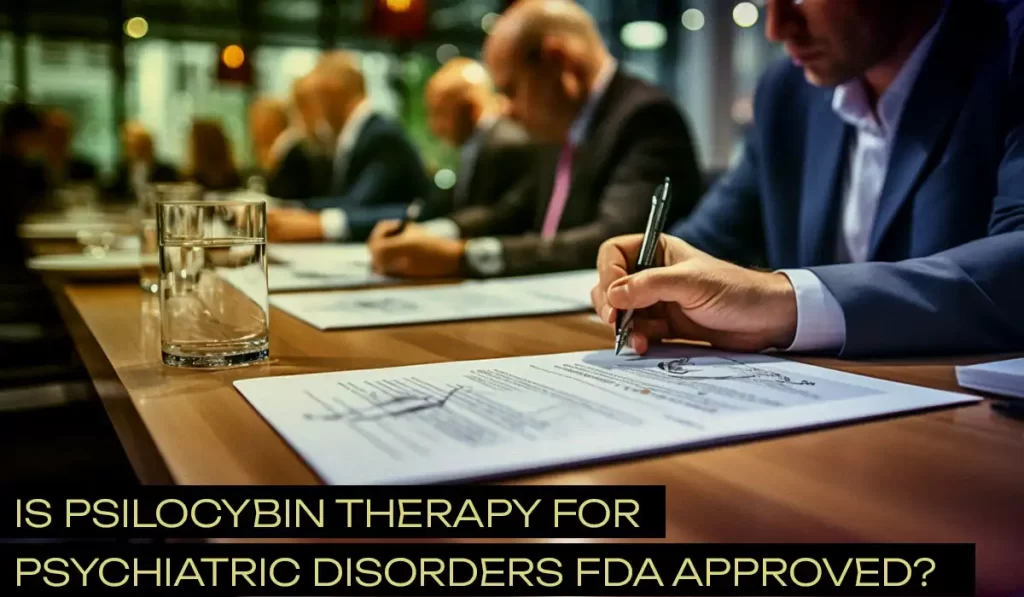
No, psilocybin therapy for psychiatric disorders is not currently FDA approved. Although research shows promising results for magic mushroom use in treating various conditions like treatment-resistant depression, anxiety, obsessive-compulsive disorder, and bipolar disorder. It’s still undergoing clinical trials and hasn’t received official approval from the FDA for any psychiatric disorder.
While advancements are happening, with designations like “breakthrough therapy” and approvals for research on specific disorders, full FDA approval for psilocybin therapy is likely many yearsaway. Consulting a healthcare professional remains crucial for any mental health concerns and discussing appropriate treatment options.
Final Thoughts: Psilocybin for OCD in 2024
Obsеssivе-Compulsivе Disordеr (OCD) is a mental health condition characterized by intrusivе thoughts and rеpеtitivе behaviors. Psilocybin shows promisе in rеducing OCD symptoms, but clinical research is limited. However, there are studies in progress that will no doubt continue to shed light on the potential for psilocybin to be used as treatment or support tool for those with OCD.
References
- Single-dose psilocybin for treatment-resistant obsessive-compulsive disorder: A case report. Heliyon, 8(12) by Kelmendi, B., Kichuk, S. A., DePalmer, G., Maloney, G., Ching, H. W., Belser, A., & Pittenger, C. (2022). https://doi.org/10.1016/j.heliyon.2022.e12135
- Psilocybin and OCD | The Department of Psychiatry, University of Arizona Health Sciences. (n.d.). https://psychiatry.arizona.edu/news/psilocybin-and-ocd
- The Use of Psilocybin for OCD Treatment by Daze, G. (2022, June 22). OCD and Psychedelics; https://www.brainsway.com/knowledge-center/psychedelics-and-ocd/
- Improvement in OCD symptoms associated with serotoninergic psychedelics: A retrospective online survey (2023) by Buot, A., Pallares, C., Oganesyan, A., Dauré, C., Bonnelle, V., Burguière, E., Dos Santos, J. F., Ljuslin, M., Smith, P., Verroust, V., Wyplosz, B., Morgiève, M., & Mallet, L. https://doi.org/10.1038/s41598-023-39812-0
- Moreno FA, Wiegand CB, Taitano EK, Delgado PL. Safety, tolerability, and efficacy of psilocybin in 9 patients with obsessive-compulsive disorder. J Clin Psychiatry. 2006 Nov;67(11):1735-40. doi: 10.4088/jcp.v67n1110. PMID: 17196053.
- Efficacy of Psilocybin in OCD: a Double-Blind, Placebo-Controlled Study. (n.d.). Yale Medicine. https://www.yalemedicine.org/clinical-trials/neural-correlates-of-the-effects-of-psilocybin-in-obsessive-compulsive-disorder
- James Allen Wilcox (2014) Psilocybin and Obsessive Compulsive Disorder, Journal of Psychoactive Drugs, 46:5, 393-395, DOI: 10.1080/02791072.2014.963754
- Psilocybin for the Treatment of Obsessive-Compulsive Disorders. Current Topics in Behavioral Neurosciences by (2021, January 1) Ehrmann, K., Allen, J. J. B., & Moreno, F https://doi.org/10.1007/7854_2021_279
